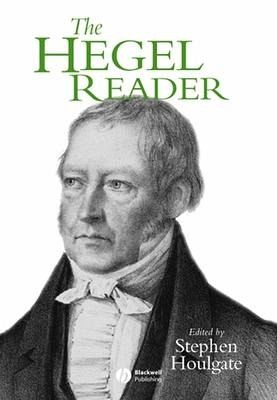
The Hegel Reader
Versandkostenfrei!
Versandfertig in über 4 Wochen
178,99 €
inkl. MwSt.

PAYBACK Punkte
89 °P sammeln!
The Hegel Reader is the most comprehensive collection of Hegel's writings currently available in English. It contains four important "early writings", as well as selections from Hegel's mature writings and lectures which are central to his system and also have special relevance for post-Hegelian thinkers. There is also an extensive bibliography listing the main German editions of Hegel's works, most of the currently available English translations of his texts, as well as a selection of important secondary works.


